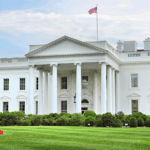Old habits die hard, especially those involving the use of government force for private financial gain.
Washington’s public-sector labor unions know this all too well. For decades, they benefited from state laws requiring public employees to pay unions as a condition of employment. State laws even require government employers to withhold dues from employees’ paychecks on unions’ behalf.
But the U.S. Supreme Court’s 2018 ruling in Janus v. AFSCME — which recognized the First Amendment protects employees from having to subsidize government unions against their will — presented unions with a choice: Retain as much of the status quo as possible through political force or use Janus as an opportunity to evolve into member services organizations based on choice and value.
Unfortunately, unions chose the status quo.
Legislation introduced by Rep. Monica Stonier, a teacher’s union activist, and recently passed by the state legislature seeks to shield unions from Janus by making it difficult in practice for public employees to exercise their constitutional rights.
House Bill 1575 speaks for itself. As written, unions could sign public employees up for dues deductions in writing, electronically or via “recorded voice authorization.” But dues cancellations could only be submitted in writing.
Additionally, the bill requires dues cancellations be submitted to the union instead of the employer, allowing unions to restrict when such requests will be honored. For instance, unions like the Washington Federation of State Employees only accept resignations 10 days per year. Only after an employee satisfies the union’s arbitrary requirements will it direct the employer to stop garnishing dues from the employee’s wages.
As for signing employees up via “recorded voice authorization,” think telemarketing on steroids.
Because the employer collects the dues, employees need not provide any payment information to the union. However obtained, a simple “yes” over the phone can lock the employee into a year of dues deductions with limited ability to cancel thereafter.
On the Senate floor, Sen. Rebecca Saldaña contended the Attorney General would prosecute any “inappropriate” behavior by unions just like unscrupulous businesses are held to account by state consumer protection laws. Unfortunately, unions are categorically exempt from the state Consumer Protection Act.
The bill also rigs the rules for future union organizing by stripping public employees of the ability to vote on whether to unionize in state-administered secret ballot elections. Instead, union organizers would confront employees one-on-one and collect “votes” in person.
If a union gathers votes from more than half of the employees it seeks to represent, it turns them in to the Public Employment Relations Commission and is certified without an actual election every taking place.
While debating HB 1575 in the House, Rep. Timm Ormsby defended the legislation by describing unions as “perversely democratic.” Though spoken sarcastically, Ormsby’s word choice could hardly have been more accurate.
Lastly, HB 1575 limits unions’ liability under state law for taking money from public employees illegally.
These policies are not easily defended on their merits and HB 1575’s advocates have hardly tried to do so. Instead, they simply believe the bill will help government unions retain membership and dues. Since they believe unions do good — or at least play for the right political team — the ends justify the means. Besides, public employees who prefer not to support the union are merely “free riders” acting against their own self-interest.
But such thinking is shortsighted. The Freedom Foundation has helped thousands of public employees in Washington understand and exercise their right to stop supporting a union. Most object to supporting their union for reasons of principle or conscience. Few are simply looking to save a few bucks on dues, while every public employee who falls victim to the kinds of coercive practices HB 1575 sanctions instantly realizes that, as far as their union is concerned, it’s all about the money.
HB 1575 passed largely along party lines, with two Senate Democrats siding with Republicans against the bill, and Gov. Inslee has already signed it into law. But until unions perform some serious introspection, public employees will continue to resign their membership, those that can’t will continue to take legal action to vindicate their rights and whatever short-term political victories unions may achieve will be undermined by a disillusioned membership held captive by the force of law.
Legalized coercion is a powerful drug, but the sooner Washington’s government unions kick the habit, the better.











